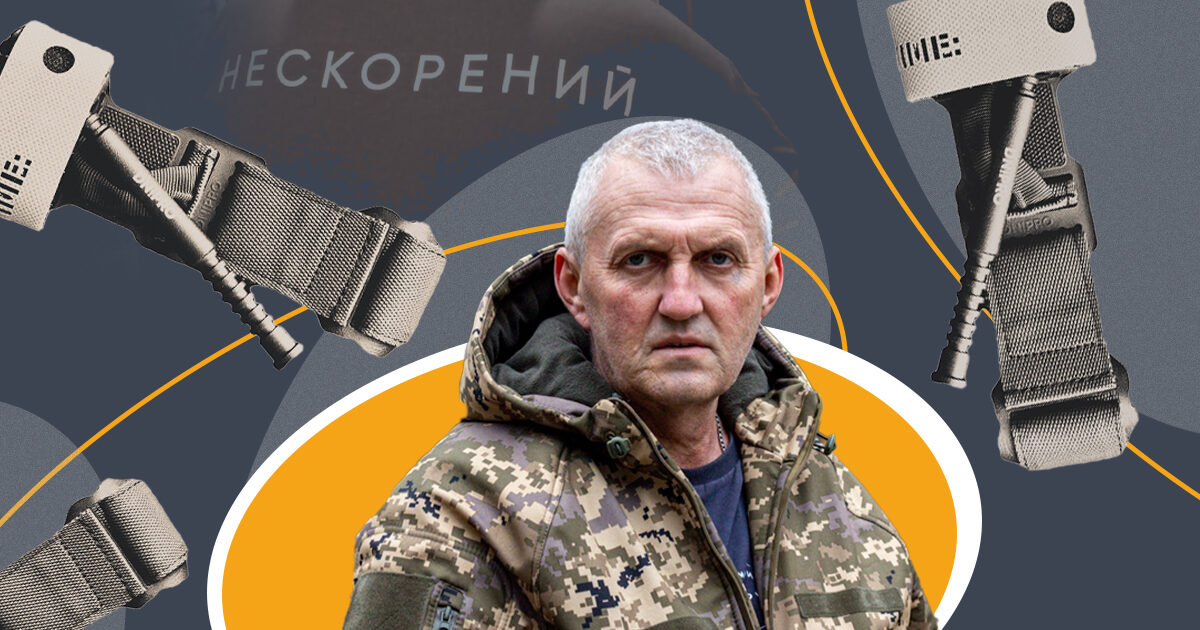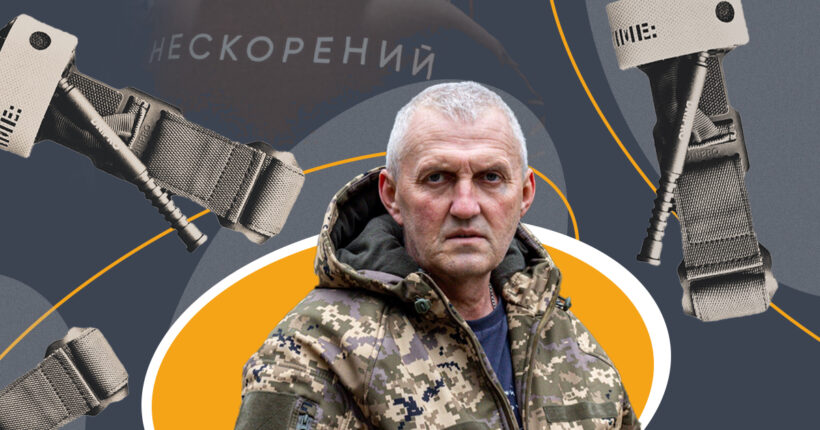
Disclaimer: Rubryka tells the story of a soldier from the soldier's perspective — it's important for us to give him a voice. However, we also recommend reading our article on why soldiers still have tourniquets that don't work and how to spot quality models amid the junk.
We can't reveal Alex's real name for safety reasons, so we'll continue using his call sign. Rubryka spoke with him while he was recovering in a hospital to document this unique story.
"If she didn't believe her brother, she could believe her Putin"
Alex is from the Vinnytsia region in central Ukraine. He says that before the fall of 2024, Kyiv was the furthest east he'd been. That changed on September 7 when Alex arrived in Vovchansk, Kharkiv region — the city Alex and his comrades defended. However, he had already felt the impact of war back in 2014 when he saw how Russian propaganda affected his relatives in Russia.
"My father is Russian. My brothers and sisters live in Bryansk. They used to visit us," says Alex. "Then, in 2014, my sister called and said, 'What are you doing over there?' By then, the propaganda about crucified little boys had started. I told her that if she didn't believe her brother, she could believe her Putin. I threw away the SIM card, and that was it. I stopped talking to them."
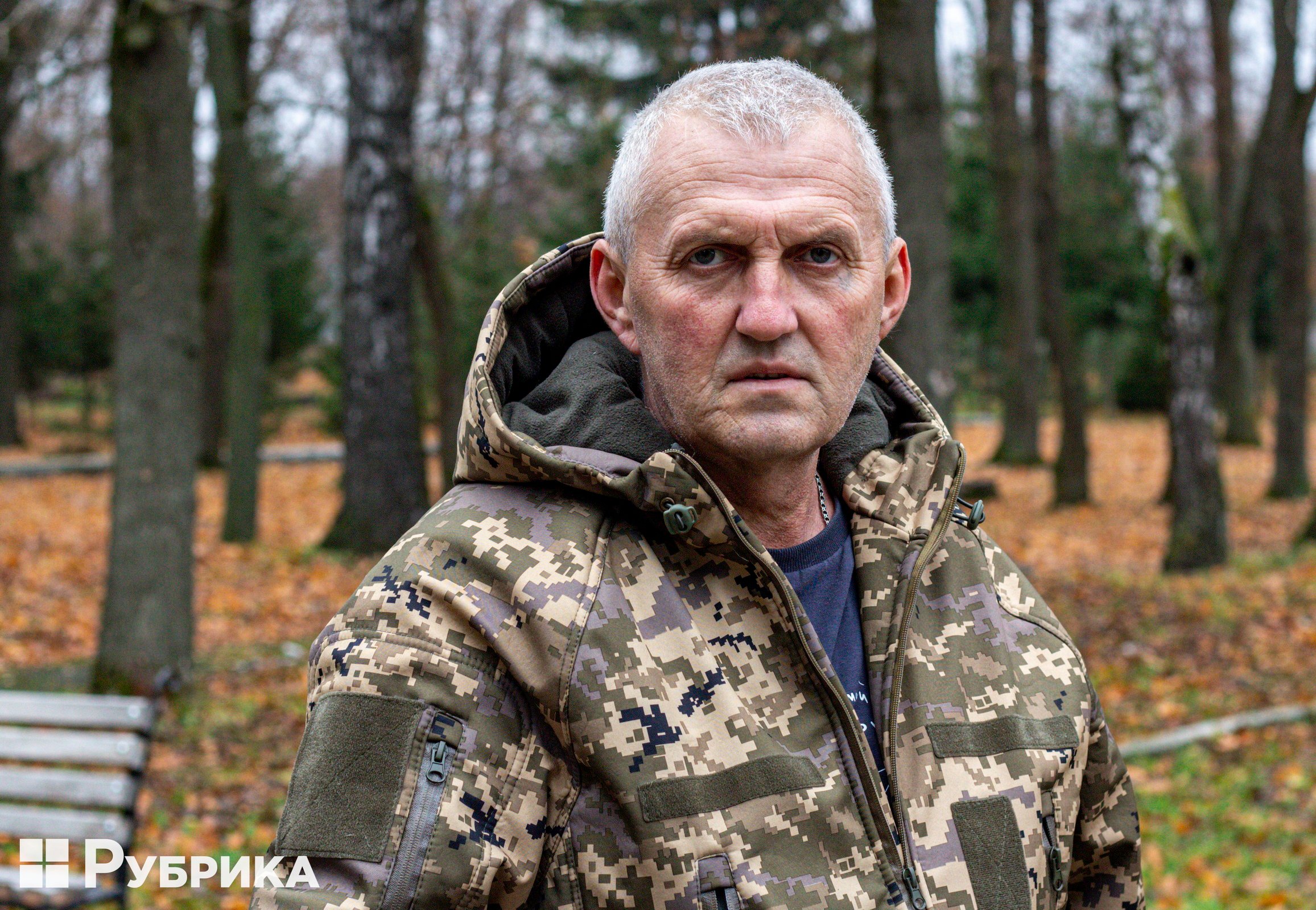
Alex, during recovery in the hospital
Just before the full-scale invasion, Alex got a work visa. He had tickets to Europe and job offers. He says that while he could've guessed that Russia might launch an attack, he never imagined it would escalate to the scale it did. And then the full-scale war began. Ultimately, Alex didn't go anywhere and stayed with his family.
"Even if I had left before February 24 to work, I would have returned anyway. I wouldn't have been able to stay there because my grandson, daughter, and mother are here. I don't know how I would've managed being away. After a week, I would've come back," says Alex.
That summer, Alex went to the military recruitment center to update his records, passed the medical commission, and was drafted. After some training, he headed to Vovchansk in September.
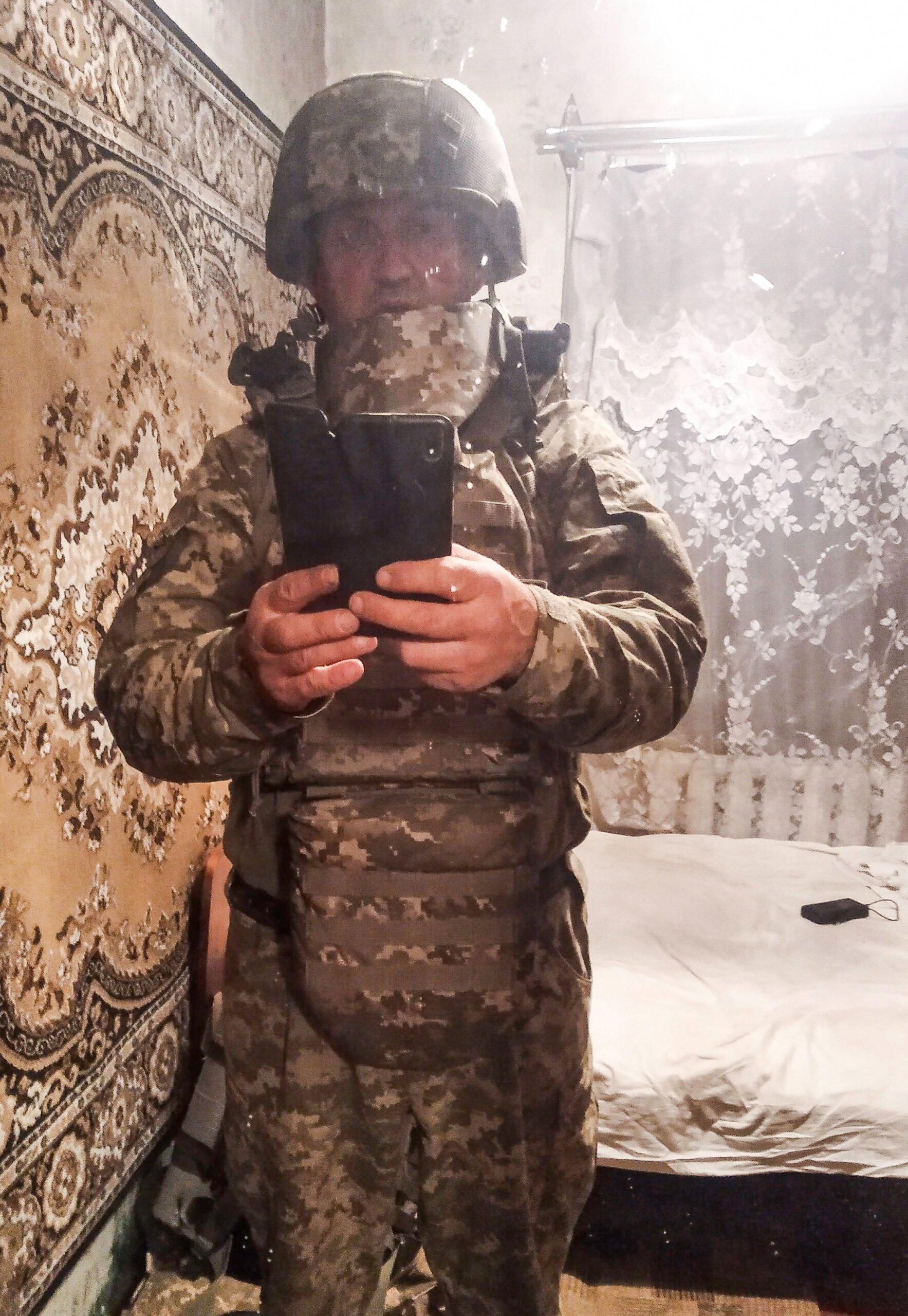
Alex before a combat mission. Photo from his archive
Tourniquet and the basement
"Vovchansk is specific — it wasn't trench warfare but urban combat," Alex recalls. "For long, enemies had been holed up in a factory. The city was gone, high-rises were bombed, and it was all ruins. I was positioned in a ruined house. But then, our trained troops arrived, stormed the factory, and captured prisoners."
Alex's command ordered him and his comrades to hold the position. There were three of them, but the Russians had been there for four or five months, knew every inch of the place, and began targeting them with cluster munitions. "Everything around us burned. Cluster munitions are the worst. You could be hiding in a cellar five meters underground, and the earth would still shake when they hit nearby," says the soldier.
The Russians launched several assaults. During one of them, Alex's position was exposed. A gunfight ensued between him and a Russian soldier. Alex says he wasn't thinking about anything other than shooting back.
The Russian soldier died, but not before he shot Alex multiple times in both arms. One of Alex's arms, he says, "was hanging by the joint."
"Well, that's it. The guys applied a tourniquet — and into the basement…"
The tourniquet was removed after 582 hours.

Better nothing than a tourniquet that will kill: how to protect fighters from low-quality tourniquets
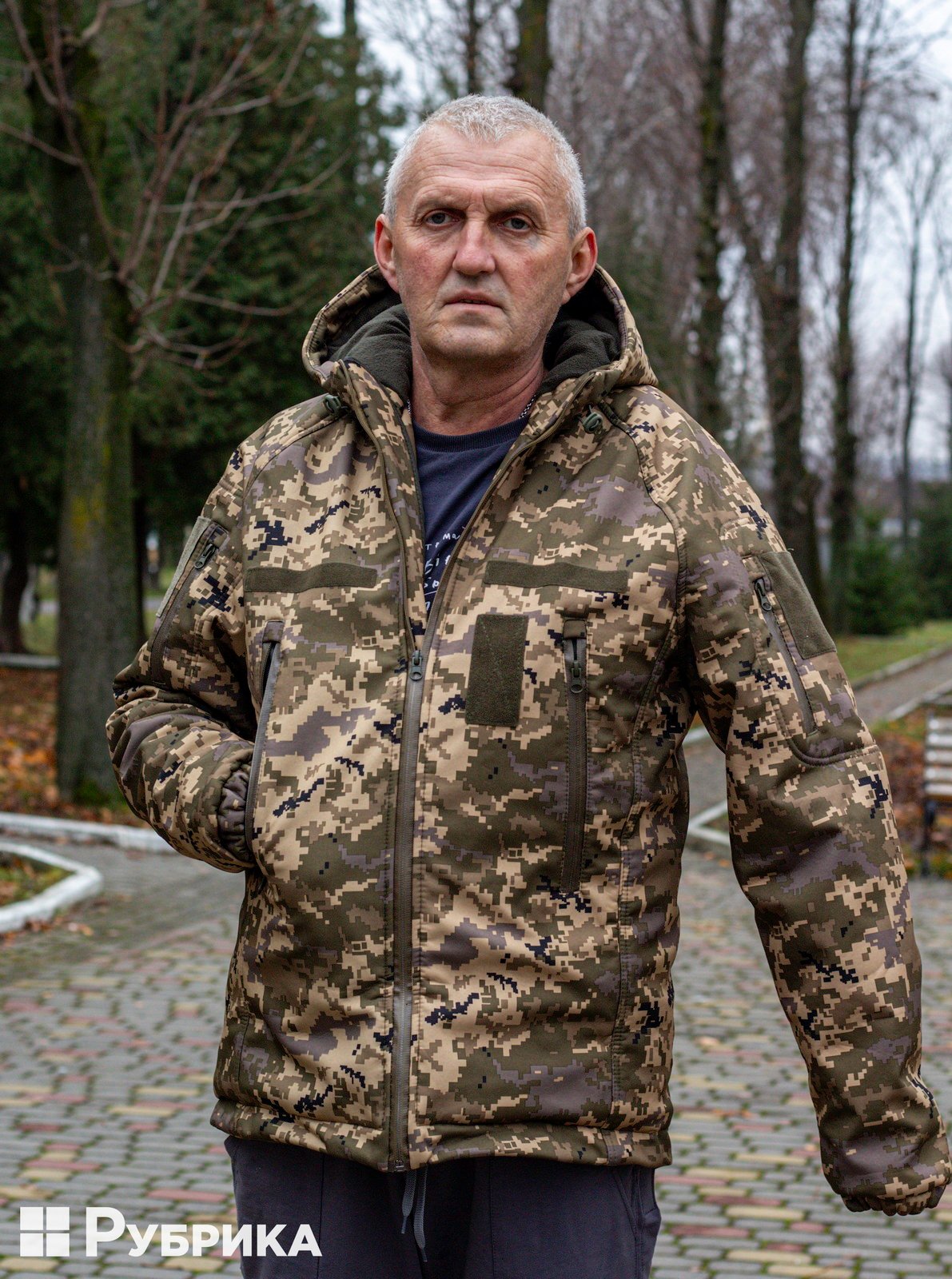
Alex, during recovery in the hospital
"I saw the sky through a crack in the rubble"
"You can't release the tourniquet because it's over for you if you do. I thought I'd just hang on and hope it holds," Alex recalls. "I didn't touch it or loosen it. Over the tourniquet, I scratched my arm and could feel it responding to touch, so it was alive. Below that, I didn't dare touch it."
His comrades told him that the following day, a few more Russian soldiers approached their position, but they were all eliminated. That's how they held the position — occasionally disposing of Russian bodies and receiving food, water, and medicine that were dropped off by drones.
"Sometimes, our guys used a drone to scout by the river, checking for Russians. When they found none, they'd fill water bottles. The water was clean, so that's what we drank," says Alex.
Meanwhile, Alex started thinking about amputation, but he and his comrades didn't dare to attempt it themselves, so they applied an improvised splint using a nearby board.
Over time, his arm began to rot. He remembers the unbearable stench surrounding the limb. Some of the wounded were taken out, but only those who could walk on their own. Alex, due to his severe blood loss, had to stay in the basement of the factory and hope for the best.
"The first night I was unconscious, then… I've only read two pages of the Bible in my life, nor have I ever been particularly religious. But during these days, I became someone who prayed more than anyone on earth," says Alex.
Alex just laid there, trying to sleep more. Food was scarce, so he tried not to move too much. "I drank some tea, took a pill, and tried to sleep. One of my comrades stole a sleeping bag from the Russians, so I'd crawl into it and stretch my arm out to avoid flies," the soldier recalls. "I'd crawl up the stairs every three or four days to get some fresh air. I could see the sky through a crack in the rubble."
"I couldn't walk. So I crawled"
Alex didn't keep track of the days during his time in the basement. He says he was always trying to sleep, and since he lost his watch in battle, it was hard to keep track of time:
"The Russians would start coming again. The guys would run around, then quickly lie down to sleep when it was a bit quieter because they could only have four hours of sleep. I didn't disturb them or ask what day it was or whether it was morning, night, or evening. What would it have given me to count the days?"
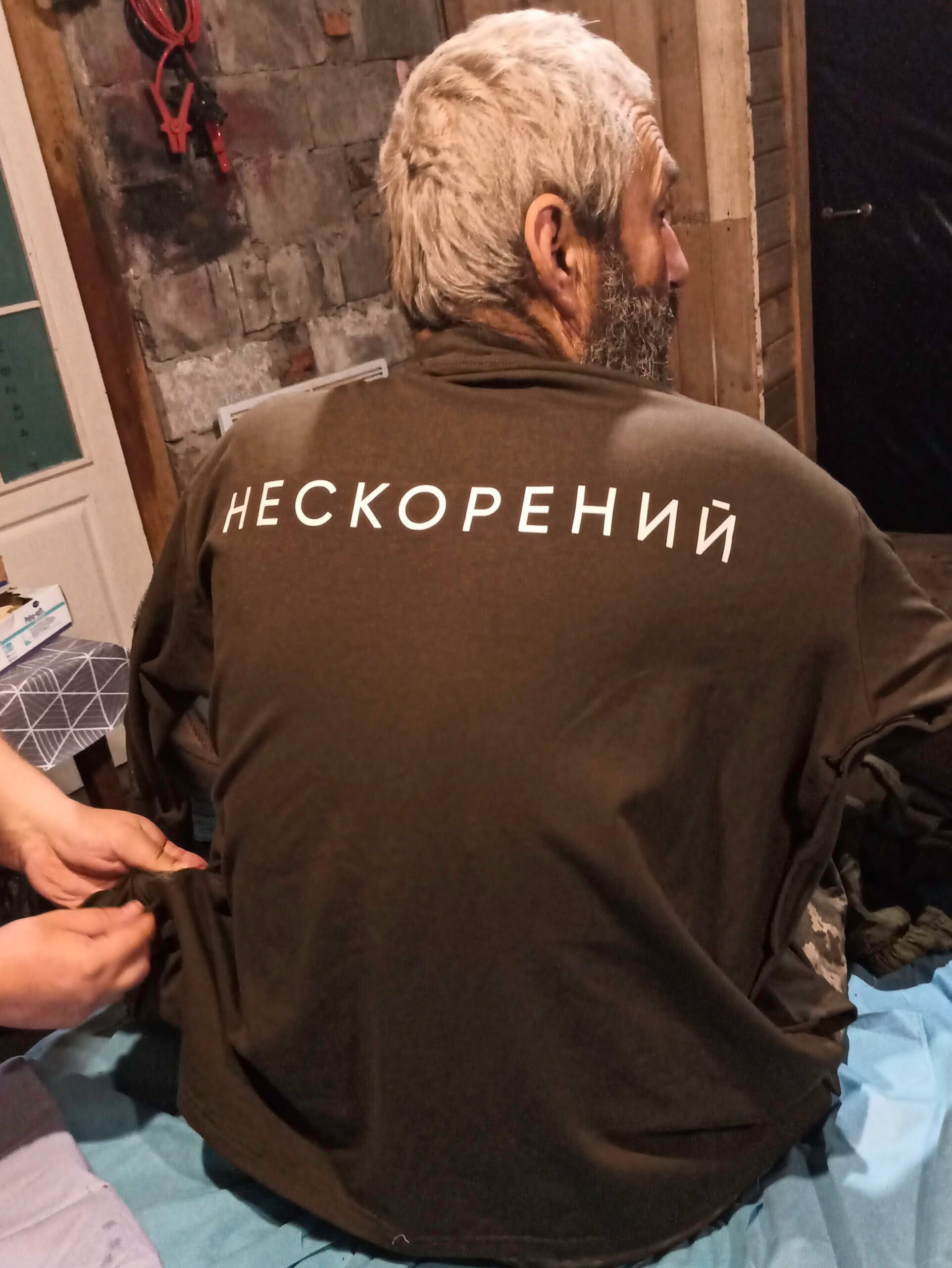
Alex is pictured in the hospital. Photo from his archive
Alex says there were always drones flying overhead. If you moved slowly, it almost certainly meant death. That's why no one could carry him on stretchers.
"We had these great English stretchers. But you go out, four people are carrying you, and you're the fifth. One explosion and there are five dead," says the soldier. "Plus, not everyone can lift a wounded person. I'm not small; I'm about one eighty-something tall, and you can't carry me easily."
Then, the wounded were taken out again. Alex had no choice but to go with them. It was day 22 of his injury, and his hand was almost mummified. The poison from the dead tissue was only being held back by the tourniquet.
"I crawled up the stairs on my knees, barely standing, because I had been lying for over twenty days. I said, let's go slowly. One guy was in front, checking for mines and booby traps, I was in the middle, and the third one was behind," Alex recalls. "I made it twenty meters and sat down. They yelled at me, so I crawled. Slowly, mostly on my elbow or knees. I kept moving, which was almost certain death, but there were areas where I couldn't walk. So I crawled."
Eventually, the soldiers reached a basement with food and water supplies. Alex and one other fighter stayed there overnight while the others kept going. The following day, the two men set off again and finally reached a safer location, where their comrades were waiting to evacuate Alex.
"That's how I crawled those two kilometers over the course of two days," says the soldier.
"I'm not running like a horse yet, but I'm not flat on my back anymore"
When Alex reached the military medics, they didn't know what to think. He had been wearing a tourniquet for 582 hours. Before him, the longest recorded time someone had been with a tourniquet was 11 days. But Alex lasted 24.
"I was lying there and couldn't believe I was safe. I kept replaying everything in my mind because, just recently, I had been there. Now I was here, with food and water, no wounded people around me. It just so happened that on that day, I was the only one who made it out. I thought that in two days I'd be gone, but here I was, coming back to life — a bit incomplete, but alive," says Alex.
Eventually, he was taken to a hospital in Kharkiv, where what was left of his arm was amputated. Then began a slow but steady recovery. Now, Alex is in the hospital, making plans for the future.
"I used to be more hot-headed, but now I'm calmer. I don't want to start fights anymore. All those everyday problems seem insignificant compared to the fact that you're 95% dead and 5% still alive," says the soldier. "I'm getting used to having just one hand. I was left-handed, and now I don't have it anymore. Maybe I'll get a prosthetic someday. I've got a few centimeters left to my shoulder, and the doctor said that with today's technology, they can attach a prosthetic even to your forehead."
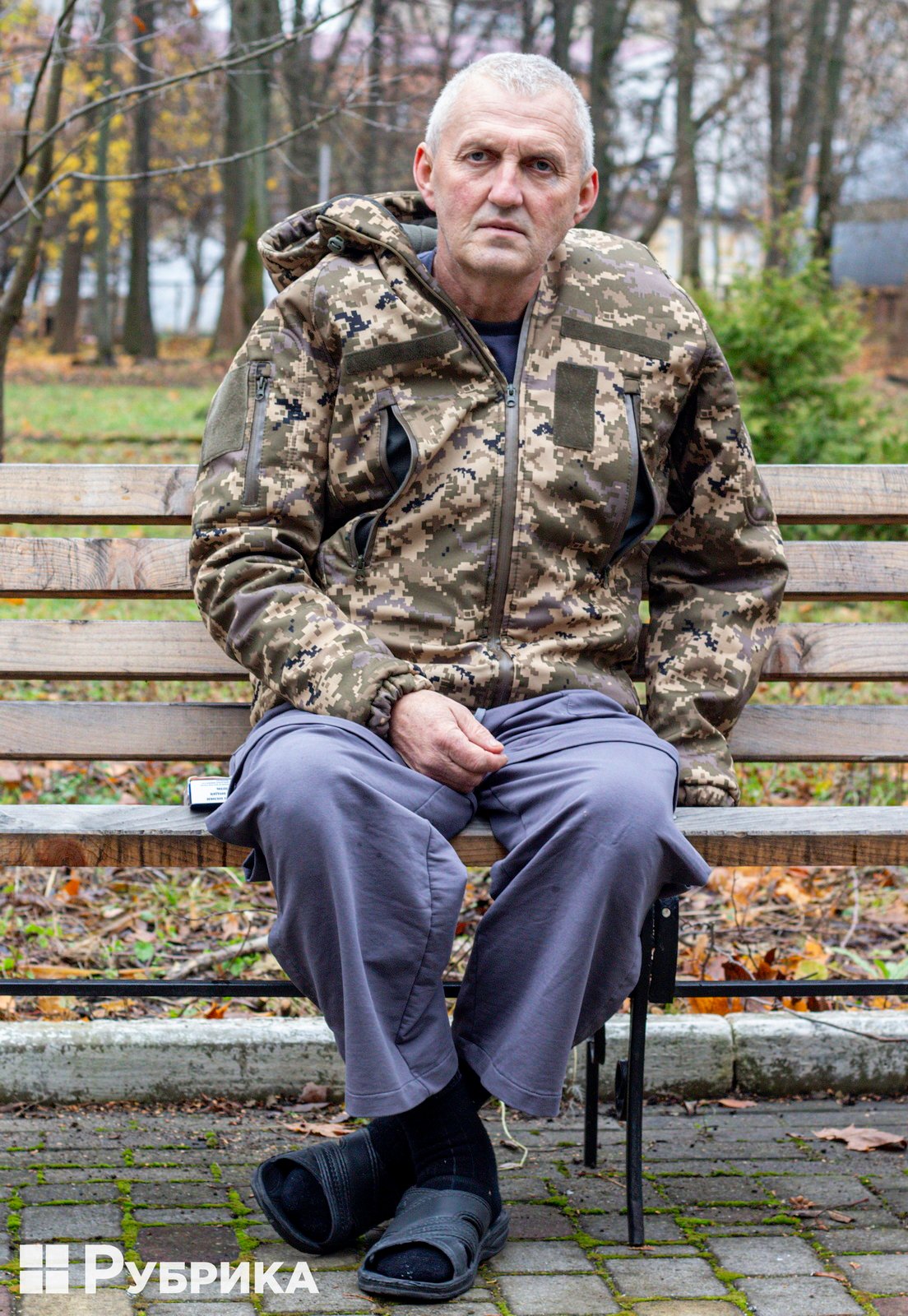
Alex, during recovery at the hospital
Alex says he wants a peaceful life, surrounded by family and comfort. Nothing else matters.
"I just want to rest now. I'm provided for — my family's set. We have a house and cars. I'll sit on a bench with my wife and grow grapes. I love it," Alex shares. "It's time to take it easy because all my life I've been running around, working non-stop, buying and selling, never seeing home for six months at a time. We'll raise chickens and enjoy our peace. The most important thing is that my son-in-law is okay; he's been fighting [on the front] for a second year now."
The soldier also dreams of finally going for a walk with his two-year-old grandson.
"I want to walk into a toy store in Vinnytsia and buy a toy. Put my grandson on a rocking horse," says Alex. "But first, I need to get my health back. I'm not running like a horse yet, but I'm not flat on my back anymore, though my legs still shake a bit. Everything will be okay."
Volunteers have created a fund to collect money for Alex's recovery. If you'd like to support him, you can do so via this link.



